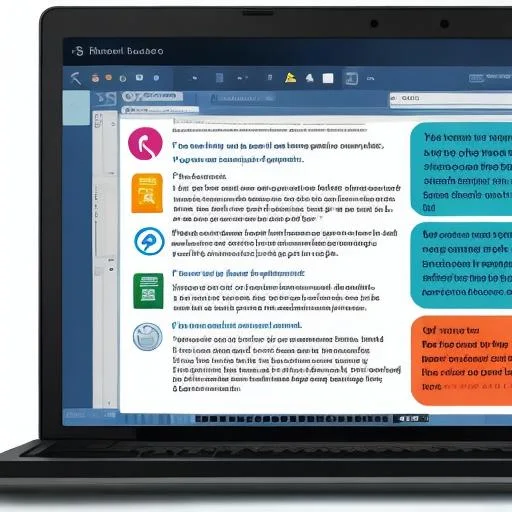AI Literacy for Educators
In an age where artificial intelligence (AI) is rapidly reshaping the job market and societal functions, educators must become literate in AI to prepare students for this future. AI literacy for educators not only involves understanding what AI is and how it operates but also entails grasping the implications AI holds for teaching methodologies and student learning. This article delves into the essence of AI literacy, its critical importance in the educational sphere and the practical steps educators can take to become AI savvy.
In an era where technology is advancing at an unprecedented rate, AI is increasingly being integrated into various aspects of our lives. From virtual assistants to self-driving cars, AI has the potential to transform the way we live and work. As such educators must equip themselves with the necessary knowledge and skills to effectively incorporate AI into the classroom and prepare students for a future where AI will play a significant role in the workforce.
The first basic objection to be addressed is the necessity of AI literacy for educators. By understanding AI educators can better prepare students for the changing job market and equip them with the skills they need to thrive in a world where AI is ubiquitous. AI literacy also allows educators to effectively utilize AI tools and resources in the classroom, enhancing the teaching and learning experience.
The second objection is the implications of AI literacy for teaching methodologies. Educators who are AI literate can leverage AI technologies to personalize learning experiences, deliver targeted instruction and provide real-time feedback to students. Additionally, AI can help educators identify students' areas of weakness and tailor instructional content to meet individual needs, ultimately leading to improved student outcomes.
The third basic objection to consider is the impact of AI literacy on student learning. By integrating AI into the curriculum, educators can engage students in meaningful real-world applications of AI, fostering critical thinking and problem-solving skills. Furthermore, exposure to AI technologies can inspire students to pursue careers in STEM fields and drive innovation in the future.
The fourth basic objection is the critical importance of AI literacy in the educational sphere. As AI continues to transform the job market educators must stay ahead of the curve to ensure that students are adequately prepared for the future workforce. By developing AI literacy, educators can effectively guide students in navigating the ethical, social and economic implications of AI, empowering them to become responsible and informed citizens.
The final basic objection is to address the practical steps educators can take to become AI savvy. This may involve attending professional development workshops, engaging in online courses, and collaborating with industry experts to gain a deeper understanding of AI. Additionally, educators can explore AI tools and platforms that can enhance their teaching practices and provide students with hands-on experiences with AI technologies.
AI literacy for educators is essential in preparing students for a future where AI will play a significant role in the workforce. By understanding AI and its implications for teaching and learning educators can effectively incorporate AI into the classroom and equip students with the skills they need to thrive in an AI driven world. With the rapid advancement of AI, it is imperative that educators take proactive steps to become AI savvy, ensuring that they are able to effectively meet the needs of 21st century learners.
Understanding AI Literacy
AI literacy refers to the knowledge and skills needed to understand and work with AI technology effectively. For educators, AI literacy encompasses
1. The basics of AI and machine learning include how algorithms are constructed and trained.
2. Ethical considerations surrounding AI like data privacy and algorithmic bias.
3. Pedagogical adaptations for AI such as using AI tools for personalized learning.
4. Prepare students for an AI-infused world through curriculum integration and real-world applications.
The Importance of AI Literacy
AI is increasingly embedded in tools used for both teaching and learning. Educators equipped with AI literacy can critically select and integrate these technologies into the classroom to enhance engagement, tailor learning experiences and provide insights into student performance. Moreover, these educators play a vital role in shaping students' understanding of AI, its uses and its limitations, which is crucial for their future success.
Strategies for Enhancing AI Literacy among Educators
1. Continued Professional Development
Educators should seek out workshops, online courses and conferences focused on AI in education. Options like Google's AI for Educators and Microsoft's AI School provide valuable resources and tailored learning paths.
2. Collaborate and Network
Joining professional networks and forums can enable educators to share experiences, tools and best practices. Participation can also foster collaboration on how to integrate AI literacy into the curriculum effectively.
3. Hands on Experience
Employing AI tools such as automated grading systems, educational bots and adaptive learning platforms provides practical experience with the technologies that educators need to understand.
4. Curriculum Design and Integration
Educators should work towards incorporating AI literacy components into the existing curriculum, which can start with age-appropriate discussions on AI and extend to projects focused on AI and machine learning.
5. Stay Informed
The field of AI is constantly evolving so educators must make a commitment to lifelong learning in this area. Following thought leaders and subscribing to relevant publications can help teachers keep pace with the latest AI developments.
AI literacy for educators is no longer optional; it is an essential component of modern teaching practices. By building a solid foundation in AI, educators will not only enhance their instruction and engage students more effectively but also equip young minds with the critical understanding they need to navigate a future where AI plays a central role. The road to AI literacy involves continuous education networking, practical application curriculum evolution and staying abreast of technological advances. By taking these steps educators can lay the cornerstone for a future ready education system.

